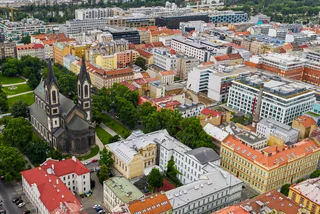Immigration is a hot topic in campaigning for the upcoming Czech elections. With a number of parties taking a negative stance towards migrant workers, Czech voters are being presented a choice between traditionalist and globalist attitudes towards the economy and society.
Yet with Czech employers struggling to find suitable workers to fill job positions, the topic of immigration is assuming a new dimension due to foreign workers' potential to help rectify a shortfall in job seekers.
The pandemic has left the Czech labor market afflicted by a lack of applicants, as people choose not to voluntarily switch jobs due to Covid-related uncertainties which have gripped the world over the last eighteen months. A recent study by ManpowerGroup Czech Republic showed that the problem is particularly acute in Prague and in large companies.
Reluctance to switch jobs has been particularly apparent among low-skilled workers, in industries such as manufacturing and logistics. The problem is severe enough that there is now less than one available applicant per vacancy on the Czech jobs market, according to statistics from the Labor Office of the Czech Republic. Recent months have also seen an unseasonal fall in unemployment; under normal circumstances, the entry of new graduates onto the jobs market sees unemployment rise at the end of the summer.
It is clear that in the current circumstances, the domestic supply of workers is not sufficient to meet the demand of Czech employers as they look to expand following the pandemic. One possible solution is now being put forward: a more lenient attitude towards non-EU job seekers entering the country from abroad. Yet this possibility is unpopular with some of the political parties vying for election this October.
“It is simply wrong to flood the labor market with third-country nationals who will push Czech wages down,” said the current Minister of Labor and Social Affairs Jana Maláčová (ČSSD). While encouraging greater ease for foreign workers seeking working visas in the Czech Republic, Prime Minister Andrej Babiš (ANO) has also taken a negative stance towards the idea of immigration in a more general sense.
“We in the Czech Republic do not want a multicultural eco-fanatic Pirate state. We do not want to share our cars. We do not want to share our apartments. We do not want to share our country,” Babiš said earlier this year.
My nechceme sdÃlet naÅ¡e auta.
— Andrej BabiÅ¡ (@AndrejBabis) June 3, 2021
My nechceme sdÃlet naÅ¡e byty.
My nechceme sdÃlet naÅ¡i zemi.
Analysts note that rather than driving Czech wages down, though, the presence of foreign workers working predominantly in non-skilled types of employment actually pushes Czech residents higher up the job market food chain. And with many Czech job seekers not interested in working in industry or construction, foreign labor could play a key part in helping restore balance to the Czech economy in the post-pandemic era.
Some Czech political parties may be unwilling to consider migrant workers as a potential solution to the Czech Republic’s labor crisis. But with problems in the labor market predicted to become even worse over the coming months, workers from abroad may provide an answer to problems facing the Czech economy.












 Reading time: 2 minutes
Reading time: 2 minutes 


























